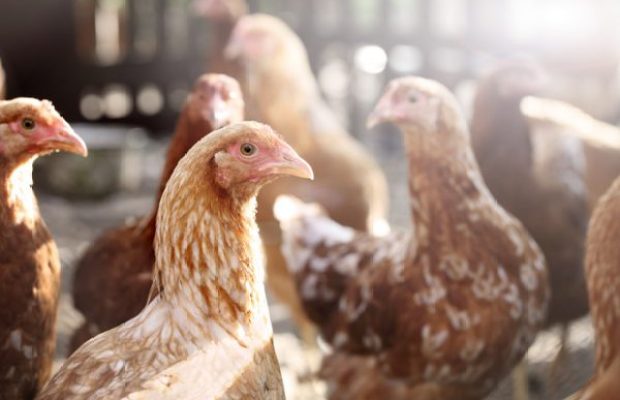https://thepreppingguide.com/5-reasons-chickens-may-be-a-risky-option-for-preppers/
5 Reasons Chickens May Be a Risky Option for Preppers
By Guest Contributor
https://thepreppingguide.com/5-reasons-chickens-may-be-a-risky-option-for-preppers/#respond

Chickens are undoubtedly one of the easiest animals to raise in a prepping or sustainability situation. They reproduce quickly, provide ample amounts of protein in the form of meat and eggs, grow fast, and they don’t require a lot of energy to care for.
But, are they really the best option for preppers? To help you decide, here’s a list of a few considerations that might make you think about opting for a different form of protein.
1. Chickens Have Specific Nutritional Requirements
If you have plenty of space to free-range your chickens, this won’t be an issue. A chicken can usually find all they need to survive in the wild. However, if you are going to be raising chickens throughout extreme environmental conditions, there’s more at stake.
Think about what you might do if there’s a drought, extreme cold, or even flooding. All of these things can affect what a chicken has available to them while foraging.
The feed we purchase in most agricultural stores will only last about 6 months before it begins to spoil, so stockpiling feed isn’t the best option.
In the wild, chickens eat vegetation’s, worms, insects, fruit, seeds, and nuts. If you can replicate this kind of diet in their environment, your chickens should be happy and healthy.
2. Chickens Need Lots of Space
In order to have a sustainable flock, you need good amount of chickens. Unfortunately, their droppings are highly acidic and if kept confined in small spaces, your chickens can develop respiratory problems.
While they need less space than most livestock, the environment you keep them in is still a concern and should be well-thought-out before going off-the-grid.
3. Chickens are Too Noisy for Off-the-Grid Preppers
If you are going off the grid or forced to go off the grid, you may not want to be found. The sound of chickens might tip others off and your location may become easily uncovered.
In calm weather, a rooster crow can be heard far and wide…and unlike the popular myth that roosters only crow in the morning, they actually keep it up all day long.
Lastly, you can’t forgo the rooster if you want a sustainable breeding program. So no matter what, they will be noisy. And even if you could nix a rooster, hens are plenty chattery on their own.
4. Attracting Predators and Rodents
Not only will chickens give away your location to other humans, but they’re also notorious for attracting other hungry predators and rodents.
Predators
The sounds and smells of chickens can attract dangerous predators like bears, wolves, and large cats. You’ll need to have a method of containing your chickens and protecting them from the many dangers they will face on a daily basis.
The last thing you want is to create a regular hotspot for predators to come for their meals— because once the chickens are gone, they will be looking for more easy pickings.
Rodents
It’s well-known that where there are chickens there are rats and rodents. This is mainly due to the commercial feed we give to our chickens.
The good news is, if you are allowing your chickens to free-range, and they are being nutritionally supported by their foraging efforts, you don’t need to keep feed on hand…thus disease-ridden rodents won’t be as much of a threat.
5. Amount of Chickens Needed To Sustain Your Family
How many chickens you need will depend on the size of your family, and whether or not you have more than one source of protein on hand.
Chickens are a great option for preppers due to their easy-peasy care needs and the fact that you get both meat and eggs from them. However, if you have a family of four, and you eat eggs for breakfast and chicken for lunch and dinner, you are probably looking for at least two chickens a day. This can vary because of all the different chicken breeds and their sizes.
Keep in mind, you don’t want to process every chicken you raise. Some should be kept for breeding, some for laying, and so on. So, all signs point to the fact that you are going to be looking at a pretty large flock!
